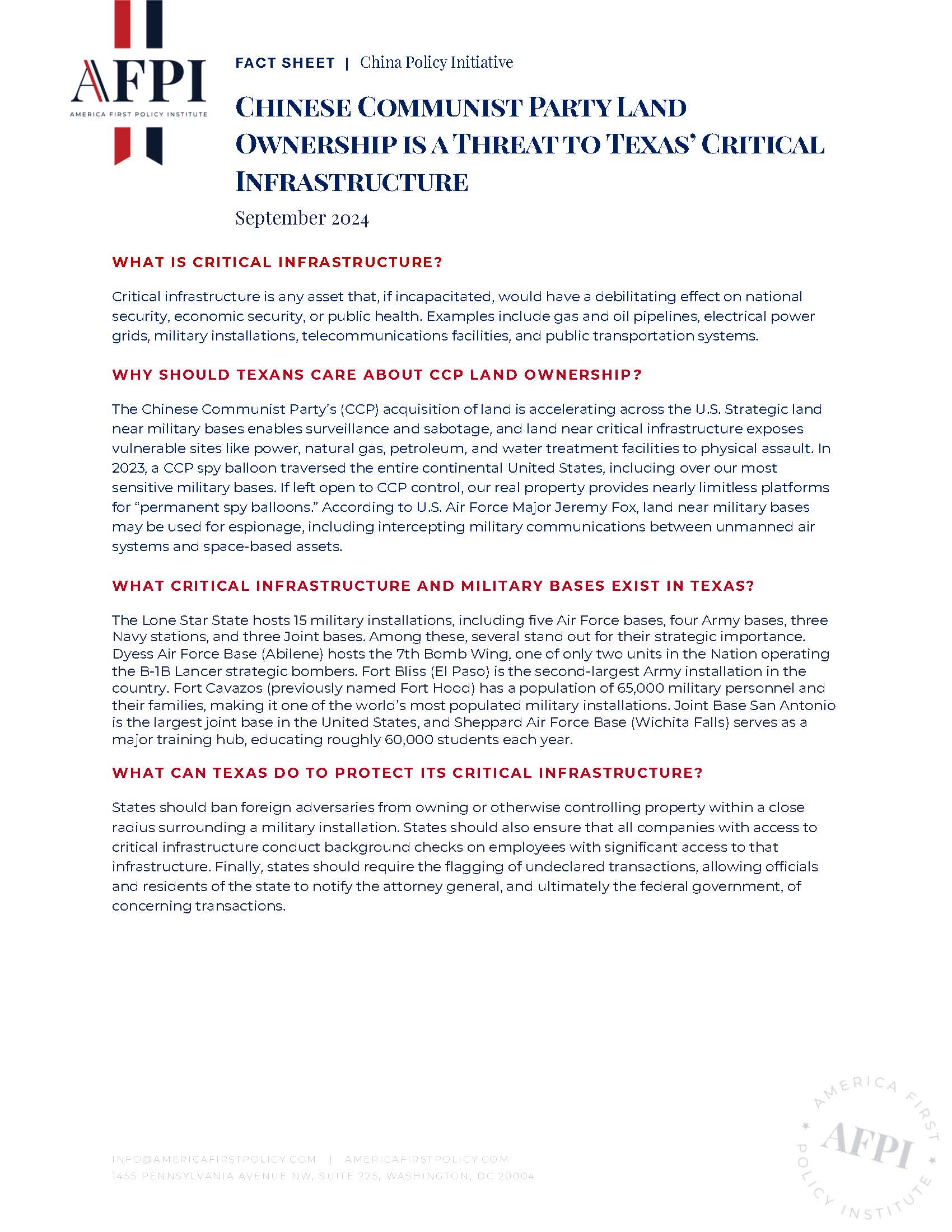America First Policy Institute
Chinese Communist Party Land Ownership is a Threat to Texas’ Critical Infrastructure
WHAT IS CRITICAL INFRASTRUCTURE?
Critical infrastructure is any asset that, if incapacitated, would have a debilitating effect on national security, economic security, or public health. Examples include gas and oil pipelines, electrical power grids, military installations, telecommunications facilities, and public transportation systems.
WHY SHOULD TEXANS CARE ABOUT CCP LAND OWNERSHIP?
The Chinese Communist Party’s (CCP) acquisition of land is accelerating across the U.S. Strategic land near military bases enables surveillance and sabotage, and land near critical infrastructure exposes vulnerable sites like power, natural gas, petroleum, and water treatment facilities to physical assault. In 2023, a CCP spy balloon traversed the entire continental United States, including over our most sensitive military bases. If left open to CCP control, our real property provides nearly limitless platforms for “permanent spy balloons.” According to U.S. Air Force Major Jeremy Fox, land near military bases may be used for espionage, including intercepting military communications between unmanned air systems and space-based assets.
WHAT CRITICAL INFRASTRUCTURE AND MILITARY BASES EXIST IN TEXAS?
The Lone Star State hosts 15 military installations, including five Air Force bases, four Army bases, three Navy stations, and three Joint bases. Among these, several stand out for their strategic importance. Dyess Air Force Base (Abilene) hosts the 7th Bomb Wing, one of only two units in the Nation operating the B-1B Lancer strategic bombers. Fort Bliss (El Paso) is the second-largest Army installation in the country. Fort Cavazos (previously named Fort Hood) has a population of 65,000 military personnel and their families, making it one of the world’s most populated military installations. Joint Base San Antonio is the largest joint base in the United States, and Sheppard Air Force Base (Wichita Falls) serves as a major training hub, educating roughly 60,000 students each year.
WHAT CAN Texas DO TO PROTECT ITS CRITICAL INFRASTRUCTURE?
States should ban foreign adversaries from owning or otherwise controlling property within a close radius surrounding a military installation. States should also ensure that all companies with access to critical infrastructure conduct background checks on employees with significant access to that infrastructure. Finally, states should require the flagging of undeclared transactions, allowing officials and residents of the state to notify the attorney general, and ultimately the federal government, of concerning transactions.
